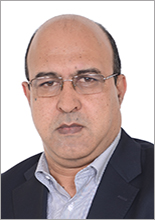Sectorial Transformation of the Tunisian Economy – Services and Manufacturing
As employment in agriculture dropped 17% from 1975 – 2011, employment in the service sector boomed. As a whole, employment in services accounted for more than half of total employment in 2011 (compared to 33 %[1] in 1975), the largest part accruing to private services with 32 % (compared to 22 % in 1975).
Available data on the entire services sector and notably market services, show that its performance is quite remarkable compared to industry and agriculture. Services achieved the best performance in terms of both value added and the absorption rate of skilled workers.
However, this positive assessment of the whole services sector hides certain disparities that exist in the various types of services offered. For example, the performance of transport and communications services measured in terms of growth of labor productivity remains significantly higher than that of other services (See Table 1).
Table 1: Comparison of Labor Productivity across Services, 1983–2008
|
Type of Service |
Mean Labor Productivity |
Annual Growth Rate of Labor Productivity (%) |
|
Construction |
2.4 |
2 |
|
Government services |
4.6 |
1.9 |
|
Finance, insurance, others |
7.3 |
-0.01 |
|
Transport and communication |
10.7 |
4.9 |
|
Public utilities |
49.5 |
1.2 |
Source: Marouani and Mouelhi 2013.
Note: a. Labor productivity corresponds to value added per worker.
Similar to the growth in the service sector, over a long period the manufacturing sector has been able to consolidate its strengths in various ways by attracting more skilled labor, with an average growth of labor productivity of 2.3 % from 1983–2008. It has also progressively enhanced the technological content of production. However, this positive trend and policy measures designed to upgrade Tunisian enterprises in light of growing competition with the EU have not significantly increased shares of technology-intensive industries in GDP. Despite a positive trend, the share of high-technology manufacturing industries in GDP remains negligible at 0.4% of GDP in 2007.
In contrast, the communications and semiconductors, pharmaceuticals, and computers and office machinery industries doubled their share in GDP between 1985 and 2007, while the GDP share of aerospace and scientific instruments industries stagnated. The Tunisian manufacturing sector has also undergone a rebalancing between textiles, clothing, and leather and among the mechanical and electrical sectors, which have moved in opposite directions. The rise and relative decline of textiles and clothing illustrates two successive transformations in Tunisia’s manufacturing sector since the 1970s: a period of rapid diversification away from fuel exports, which dropped from 52% in 1980 to 13% in 2006 and a gradual diversification away from low-value-added textiles and clothing toward light mechanical and electrical manufacturing, which now dominates exports.
[1] This %age corresponds to the sum of market and nonmarket services employment share in 1975.
Sofiane Ghali is a full professor of economics and Dean of the Higher School of Economic and Commercial Sciences of Tunis (ESSECT, University of Tunis). His fields of specialization are in the areas of industrial organizations and international economics. He has published papers in internationally refereed journals and contributed to several studies for Tunisian national agencies and organizations such as the ITCEQ and IACE, and international organizations like the World Bank, OECD, EIB, FEMISE, ERF, and GDN. He holds a Ph.D. in Economics.
Sami Rezgui is a full professor at the University of Manouba in Tunisia. He is specialized in the areas of macroeconomic policies, international economics, industrial economics and innovation policy. He is author of several research papers published in international journals and he is also consultant and contributor to various reports for international agencies (OECD, World Bank, Femise, Mediterranean Institute) and national institutions (Institute of quantitative Studies, Arab Institute of Business Managers, Ministry of Trade, Investment Agency Promotion). He Holds a Ph.D. in Economics.
